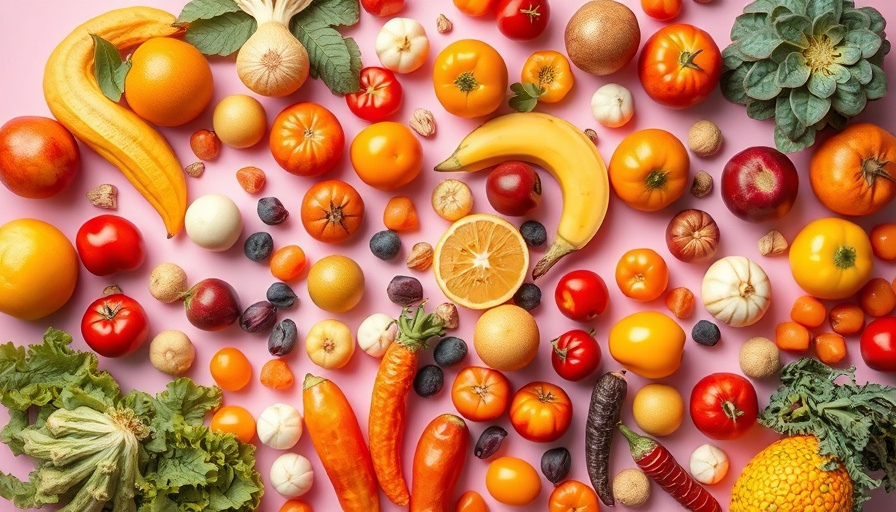
Understanding Insoluble Fiber's Impact on Ulcerative Colitis
As many know, a balanced diet is vital for our overall well-being, but for those living with ulcerative colitis (UC), dietary choices become paramount and complex. UC, an inflammatory bowel disease, can exhibit a myriad of uncomfortable symptoms such as cramping, bloating, and diarrhea. One particular dietary component that requires scrutiny is insoluble fiber. While often celebrated for its health benefits, this type of fiber can present challenges for individuals managing UC. Before reaching for that apple or hearty whole grain, it's important to understand how insoluble fiber can influence your symptoms and overall health.
Why You Should Be Careful with Insoluble Fiber
The body's reaction to different types of fiber often depends on the underlying health conditions one may have. Insoluble fiber, commonly found in foods like whole grains, nuts, fruits, and certain vegetables, doesn't dissolve in water—it remains intact as it moves through the digestive tract. For someone with UC, the colon's lining is inflamed, which makes it more sensitive to coarse and rough fibers. Ritu Nahar, MD, a gastroenterologist at Allied Digestive Health, explains, “The irritation can be uncomfortable and can exacerbate symptoms during flare-ups.” Indeed, it’s this very irritation that can lead to increased discomfort, making it crucial for UC patients to monitor their fiber intake effectively.
Identifying Foods High in Insoluble Fiber
Determining which foods are high in insoluble fiber can be tricky since many foods offer a mix of both soluble and insoluble fibers. For example, while the flesh of an apple provides soluble fiber, its skin is rich in the insoluble variety. Essentially, for those managing UC, understanding which foods contain insoluble fiber is key to preventing uncomfortable flare-ups. Some common foods rich in insoluble fiber that should be approached with caution include:
- Fruits: Blackberries, blueberries, strawberries, and figs.
- Vegetables: Cabbage, broccoli stems, asparagus, and artichokes.
- Grains: Whole grains like rye, quinoa, and brown rice.
- Nuts and seeds: Including whole forms and chunky butters.
In a world where healthy eating is often simplified to "the more fiber, the better," it’s worth noting that those with UC may need to take a road less traveled.
The Important Role of Soluble Fiber
While insoluble fiber can wreak havoc, soluble fiber, on the other hand, has properties that can promote gut health, especially for those experiencing UC. Found abundantly in foods such as oats, fruits (like bananas and apples without the skin), and legumes, soluble fiber forms a gel-like substance during digestion, which can help ease the process and promote bulk in stools. “Soluble fiber can help in managing diarrhea by slowing down digestion,” explains Danielle Barsky, MS, RD, a registered dietitian at Cedars-Sinai. It’s essential for individuals with UC to integrate foods rich in soluble fiber into their diets to ensure balanced gut health while carefully moderating the intake of insoluble fiber.
Making Dietary Adjustments
For women who are balancing family health, personal wellness, and perhaps managing their own health challenges, incorporating dietary changes can be daunting. Yet, small adjustments can yield significant results. Start by tracking which foods trigger symptoms, and don’t hesitate to experiment with different cooking methods. For example, cooking vegetables can often soften their fibers, making them easier to digest.
Moreover, consulting with a dietitian specializing in IBD can empower you to create a tailored diet that ensures you meet your nutritional needs while maintaining comfort.
Final Thoughts and Takeaways
Living with ulcerative colitis often feels like a balancing act, especially in the realm of nutrition. While it’s vital to embrace the benefits of fiber, understanding the type and source of the fiber is equally important. For those navigating this condition, focusing on soluble fiber and being vigilant about insoluble fiber can lead to a more manageable and healthier lifestyle.
Remember, this journey doesn’t have to be walked alone. Whether it's through connecting with healthcare professionals, sharing experiences with others in the UC community, or engaging with family, finding support is essential to thriving amidst dietary challenges. Let’s learn to listen to our bodies while also nurturing them with the right foods.
 Add Row
Add Row  Add
Add 




 Add Row
Add Row  Add
Add 

Write A Comment